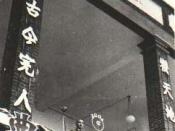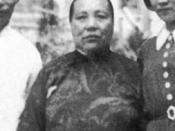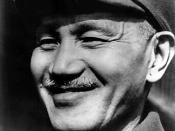To what extent was the impact of the 2nd Sino-Japanese War on the GMD regime responsible for CCP's victory?
In July 7 1937, Sino-Japanese hostilities were initiated by the Marco Polo Bridge Incident and lasted 8 years until formal surrender by the Japanese in September 1945. Immediately after war, the GMD turned their attention to resisting the CCP. After four years of full scale civil war, on October 1 1949, Mao Zedong proclaimed the birth of the China's Republic of China at Tiananmen Square. This essay will analyze the severe consequences that the GMD suffered throughout the 2nd Sino-Japanese War, including the weakened military power, the collapsed economy as well as the rise of strong anti-Japanese sentiment. It will be argued that while the CCP's effective leadership contributed significantly to its success, the impact of the 2nd Sino-Japanese War on GMD's regime was the most crucial factor to CCP's victory.
The 2nd Sino-Japanese War was a military catastrophe for the GMD that contributed to the CCP's victory in the civil war. In the 8 years of war, the GMD sacrificed approximately 3 million military casualties fighting the Japanese, significantly reducing the size of army. In addition, increasing government deficits triggered by the Sino-Japanese War strained the supply of military resources, resulting in prevailing malnutrition and clothing shortages in the army. After experiencing such intense suffering, the GMD soldiers were not convinced to fight another war. The army's reluctance is exemplified by renowned Chinese historian, Immanuel Hsu, who stated 'The Nationalist government, which bore the major brunt of the fighting, was so depleted physically and spiritually that it was manifestly incapable of coping with the new challenges of the postwar era.' Therefore, the GMD army was plagued with poor morale, lacked essential discipline and poorly executed Chiang's commands, convincing U.S. to...


